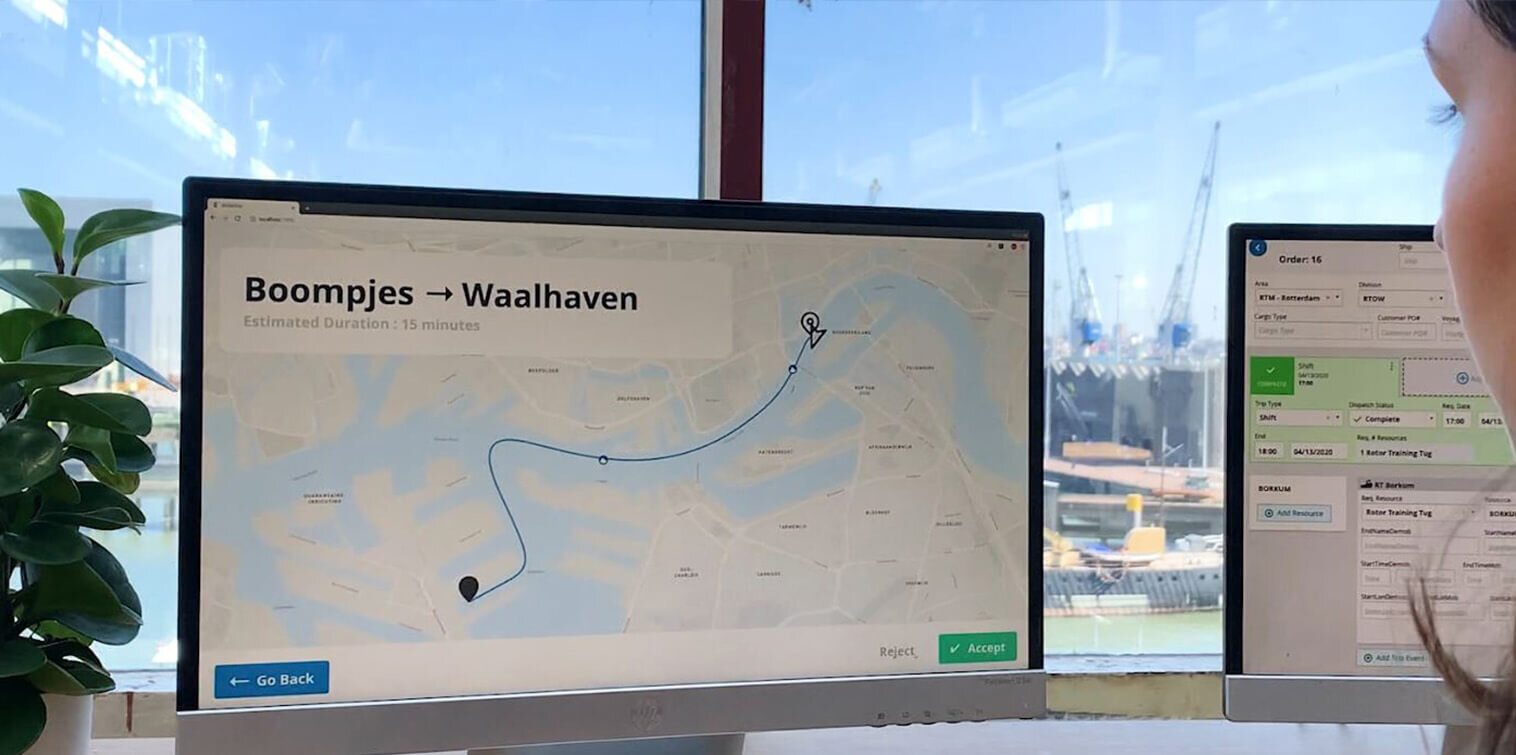Learn more about digitalisation in the maritime capital of Europe.
KOTUG has long been a tugboat company. But in recent years it has developed into a one-stop shop: supervising the construction of (tug)boats, advising on boats and the design of a port, operating boats, training crews and financing. The company has always been innovative.
Everts: 'It's in our DNA to act quickly when there are developments. And often, to also anticipate or initiate those developments. One of the innovations we are most proud of is the E-KOTUG, the hybrid tugboat with which we were the first in the world to enter into Class. Companies are looking for solutions that can meet stricter environmental requirements. KOTUG offers sustainable solutions that facilitate the transition to a CO2-neutral and digital port.’
OptiPort - Planning autonomous shipping
The company is working on various projects in which technology is being developed to enable smart, safe and cleaner sailing. One of the products KOTUG has developed is OptiPort. Everts: 'We have set up a project in close collaboration with our local partner Captain AI. This involves working on the autonomous sailing of the tugboat RT Borkum that uses the planning software from KOTUG OptiPort. This software allows us to better schedule fully autonomous tugboats, but also other vessels, in ports. It makes it possible to determine the shortest route in combination with the optimal sailing speed. This leads to considerable fuel savings. It enable us to contribute to cleaner and more efficient operations throughout the maritime world.’ According to Everts, utilising OptiPort can save a total of 25 to 40% in operational costs.
‘OptiPort was originally built for tugboats, but we are now seeing that it can also be applied to other types of boats, including inland vessels, enabling us, for example, to make entire ports more efficient,' says Everts. 'This project also makes a difference when it comes to the efficient operation of a shipping company. If a shipping company has autonomous boats, but no one knows where they have to go, they will still need people to manually plan the boat movements. That is precisely where the inefficiency lies; the wrong boats being scheduled incorrectly. We solve this problem with OptiPort: a platform that ensures that autonomous boats in a harbour will arrive at their destination at the right time and at the right speed.’ The planning software is also fully scalable according to Everts, enabling complete planning of a port. Everts also closely monitors developments in the field of alternative fuels for ships. 'But the real beauty of OptiPort is that something can be done right away to make ships sail more sustainably, with no expensive investments and no hardware having to be purchased.’ In this way, KOTUG is making a direct and immediate contribution to reducing emissions.
Citybarge - Sustainable logistics in inland waterways
Another project in which KOTUG is participating is CityBarge. CityBarge is an urban logistics concept, born out of the ambition to improve the quality of life in cities by using existing inner-city canals for the distribution of, for example, (industrial) waste and building materials. Everts: 'An electric pusher boat, in combination with a barge and a system of mini-hubs, ensures that logistics flows in the city centre can be transferred from the road to the water. We are now also looking at the possibilities of water connections between cities. Waterborne transport offers a sustainable alternative to road haulage. The CityBarge concept is a breakthrough when it comes to 'middle mile' transportation, which to this day, is still largely done by road. This causes CO2 emissions and congested roads in the city centre. The first CityBarge, the CityBarge One, has been sailing since last August 2020.’
